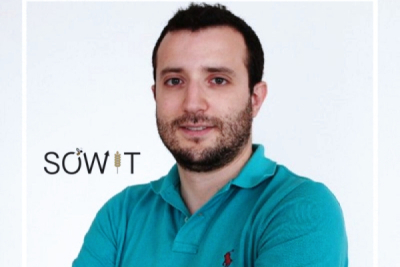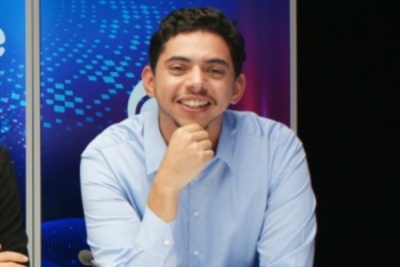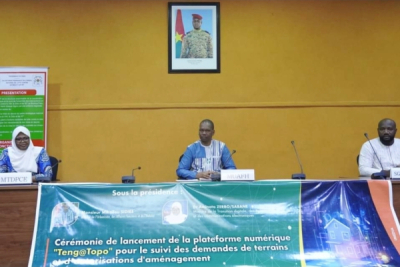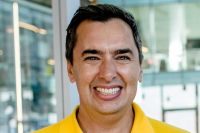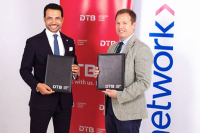Improving regional cooperation leads to better connectivity across African countries. This connectivity is vital for economic growth, as it facilitates trade, communication, and access to information. Through such collaborations, African countries can leverage collective resources to foster economic growth.
Zambia has ratified the Constitution and Convention of the African Telecommunications Union (ATU), strengthening its commitment to advancing telecommunications and ICT development in Africa. The instruments of ratification were deposited at the ATU headquarters in Nairobi, Kenya, today July 26, and received by ATU Secretary General John Omo.
The Republic of Zambia... - African Telecommunications Union | Facebook
Alfred Musemuna, Zambia's Charge d'Affaires in Kenya, delivered the instruments on behalf of the Minister of Science and Technology, Felix Mutati. Musemuna conveyed Mutati's message, emphasizing Zambia's dedication to regional cooperation and connectivity. "Zambia recognizes the critical role of the ATU in promoting connectivity for the benefit of all African countries. We are excited to contribute to the Union’s goals of a digitally inclusive Africa," said Mutati.
Countries ratifying the ATU's foundational instruments gain benefits, including full engagement in Union activities, voting rights, eligibility for elections within the Union's Permanent Organs, and the ability to nominate candidates for elective roles.
“ATU is the leading continental organization fostering the development of information and communication technologies infrastructure and services.” With Zambia's ratification, 32 out of 52 African countries represented by ATU have now ratified or acceded to the Union's Constitution and Convention, initially signed by ATU Member States in 1999 and revised in 2014.
This step underscores Zambia's commitment to technological advancement and regional integration through active participation in international forums. As a member of the International Telecommunication Union (ITU), Zambia engages in the Regional Standardisation Forum for Africa. The country has also adopted several ITU conventions and guidelines, such as the Guidelines on Child Online Protection, which have been localized and implemented by the Zambia Information and Communications Technology Authority, as outlined in the National ICT Policy 2023 Republic of Zambia Implementation Plan 2022 - 2026.
Hikmatu Bilali
Visa is inviting women entrepreneurs in South Africa to apply for the She’s Next program. The program is offering over ZAR1 million (USD 54,540) in funding, along with mentorship and training, to help businesses grow and contribute to the South African economy.
Eligible businesses must be at least 51% woman-owned and 51% black-owned, operate in South Africa, have annual revenue under ZAR50 million (USD 2,728,000), and have been operating for at least one year before July 22, 2024.
Application closes by August 9.
As a data entrepreneur, he uses artificial intelligence and remote sensing to provide farmers and agricultural organizations with practical tools that help them make informed decisions.
Hamza Bendahou (photo) is a Moroccan entrepreneur specializing in technological services for agriculture. He is the co-founder of SOWIT, a startup that provides precise data to decision-makers in agriculture and environmental sectors.
Founded in 2017 by Hamza Bendahou and Hamza Rkha Chaham, SOWIT develops decision-support tools to assist African farmers. Their clients include food companies, governments, farmers, as well as banks and insurers. Through its platforms, SOWIT provides the necessary data for making informed decisions.
SOWIT offers six mobile applications: SoDry, SoYield, SoWater, Monitor, Fertisat, and Skowt. SoDry helps determine the optimal date for harvesting corn silage. SoYield uses artificial intelligence to provide production estimates up to two months before harvest. SoWater calculates the water needs of a plot to optimize irrigation.
Monitor allows access to a SOWIT expert for co-managing agricultural operations through weekly crop diagnostics based on satellite remote sensing. Fertisat determines the fertilizer needs of crops. Skowt improves inspection efficiency by guiding operators to sensitive areas and providing a comprehensive report.
Hamza Bendahou holds an engineering degree in electronics and signal processing, obtained in 2011 from INP-ENSEEIHT in Toulouse. He also graduated from the Institut Supérieur de l'Aéronautique et de l'Espace (ISAE-SUPAERO) with a master's degree in financial engineering in 2012.
After an end-of-year internship in Airbus' flight test department in 2011, Hamza Bendahou joined AXA Investment Managers in 2012, where he held positions as a fund range manager and product manager. From 2013 to 2018, he worked at Gras Savoye, a financial services company, as a market studies officer and later as head of the actuarial studies department.
Melchior Koba
A computer science graduate, he applies artificial intelligence, the Internet of Things, and computer vision to develop new aquaculture technologies.
Mohamed Ben Ahmed (photo) is a Tunisian entrepreneur and computer scientist specializing in computer vision and artificial intelligence (AI) development. As the co-founder and CEO of Aquadeep, he uses technology to revolutionize the aquaculture sector.
Founded in 2021 by Mohamed Ben Ahmed and Youssef Chahed, Aquadeep is a tech startup aimed at facilitating aquaculture. The company develops AI and computer vision-based solutions to help aquaculturists count larvae and fish in their ponds. It also provides data extraction tools based on the Internet of Things (IoT) for better control of the farming process.
“We develop solutions based on artificial intelligence and computer vision, an AI technique that enables computers to see and interpret images and videos in the same way humans do,” explained Mohamed Ben Ahmed in July 2024.
Aquadeep's solutions help fisheries better control their yields, ensuring healthier fish farming and more efficient cost and stock management. The company offers a larval fish counter and a fully industrial juvenile fish counter. Additionally, it provides a mobile AI-based application that simplifies daily tasks for fishery employees.
Mohamed Ben Ahmed holds an engineering degree in computer science, obtained in 2021 from the South Mediterranean University in Tunisia. Before venturing into entrepreneurship, he worked as a hardware engineering intern at Cloud Temple in France in 2018. In 2020, he completed a full-stack developer internship in Tunisia at Think-it, a software engineering organization.
Melchior Koba
The digitization of public services in Burkina Faso is progressing steadily, affecting all sectors, including land management.
On Thursday, July 25, Burkina Faso's Minister of Digital Transition, Posts, and Electronic Communications, Aminata Zerbo/Sabane (photo, left), co-chaired the official launch ceremony of the Teng@ Topo platform alongside her counterpart, Minister of Urbanism, Land Affairs, and Housing, Mikaïlou Sidibe (photo, center).
This solution, managed by the Ministry of Urbanism, offers six main services: boundary requests, issuance of plan extracts, land identification, tracking of land requests, change of land use, and authorization for subdividing or restructuring land.
"I am greatly satisfied to see this project led by the ministry I oversee come to fruition. This platform is a valuable tool for the public and it underscores the government’s commitment to modernizing administrative services for the benefit of all Burkinabe citizens," stated Mikaïlou Sidibe.
The Teng@ Topo platform is part of the National Strategy for Public Administration Modernization (SNMAP) 2021-2025, aiming to digitize 100% of administrative procedures by 2025. As of February, the average rate of administrative procedure digitization was 83.97%, according to an evaluation by the Ministry of Digital Transition.
The launch of this new platform is expected to allow users to submit their requests online, saving time. They will also be able to track the progress of their requests without having to travel and receive the necessary documents directly online. This initiative will help reduce long queues in administrative offices, lower the costs associated with frequent travel, and improve the transparency of administrative processes. Additionally, by centralizing land information, it will facilitate access to data for urban planning and land professionals, as well as investors, while securing real estate transactions.
Samira Njoya
African nations are in the process of digitizing their services. To fully realize the benefits of these advancements for their citizens, a robust unique identification system is crucial.
The Burkina Faso government, during the ministerial council on Wednesday, approved a bill establishing an electronic unique identifier for all residents.
The system will use biometric and biographical data to create a unique code for every person living in the country, including citizens abroad and foreign residents. However, it will not replace existing identification documents.
“This unique identifier will strengthen the identification system, allow better management of population data, facilitate service delivery, and clean up sectoral identification databases,” said Minister of Digital Transition Aminata Zerbo/Sabane.
This initiative is part of the West Africa Unique Identification for Regional Integration and Inclusion (WURI) program. The project, active in six West African countries (Burkina Faso, Côte d'Ivoire, Benin, Niger, Togo, and Guinea) with financial support from the World Bank, aims to achieve digital identification for at least 85% of the population by 2026.
The implementation of this unique identifier will create an electronic code associated with every person living in Burkina Faso, as well as Burkinabè abroad and foreigners residing temporarily in the country. Besides ensuring the uniqueness of each individual, the unique identifier will be a key tool for inclusive growth. Public services such as social safety nets, healthcare, education, and businesses will be able to rely on this system to identify and authenticate their beneficiaries and clients.
Once adopted by the National Assembly, this law and the developing identification system are expected to contribute to the cleaning up of sectoral identification databases and ensure interoperability between these databases. This will resolve duplication issues and improve administrative efficiency.
Samira Njoya
Designed with the unique challenges of educational institutions in mind, this innovative solution aims to simplify operations.
Studirium is an edtech platform developed by a promising Cameroonian start-up. Founded in 2024 by Eric Bruno Tia Nossoue and based in Douala, the platform aims to digitalize the educational ecosystem for schools.
“Our product is a web and/or mobile application that securely records, generates, processes, manages, makes accessible to authorized personnel, and archives school data. This is to enhance school performance, increase parental oversight, and regularize private tutoring in Africa,” explains the startup.
Although the solution lacks a dedicated mobile application, users can access its services via a web browser. The process begins with school administrators filling out a form to add their institution, providing details such as the school name, structure, motto in French and English, and location.
Once the form is submitted, a start-up agent contacts the user to verify the school’s documents. If everything is in order, the account is activated. From the dashboard, administrators can manage various tasks, including pre-registration and transferring students between schools.
Since its launch, Studirium boasts 56 schools, 403 classes, and 12,612 learners. In 2024, it was selected as one of the ten startups to participate in the Cameroon stage of the Orange Social Entrepreneur Prize in Africa and the Middle East.
Adoni Conrad Quenum
An IT professional by training, he is passionate about using technology to solve business problems. Through his company, he aims to make the internet safer for everyone.
Sam Hutchinson (photo), a South African IT professional and entrepreneur, is the co-founder and CEO of Sendmarc, a startup that automates the protection of businesses against identity theft and phishing attacks.
Founded in 2018 by Hutchinson, Sacha Matulovich, and Keith Thompson, Sendmarc aims to make the internet safer for everyone. The company offers a platform that helps businesses and their partners protect their data, generate revenue, train, and grow. Sendmarc's solutions shield companies from cyber threats such as phishing, spoofing, and identity theft.
Before co-founding Sendmarc, Hutchinson established Music Industry Online in 1999, a portal providing information on the music industry in South Africa. In 2003, he founded Prefix Technologies, where he served as the chief software architect until 2013. This holding company manages two products: Everlytic and Preditor.
Founded in 2010, Everlytic is a platform for email, SMS, and social marketing that enables businesses to send, deliver, and track their digital communications. Preditor is a content management system, now managed by Grenade Technologies, a digital agency offering innovative content solutions to publishers in emerging markets.
Hutchinson graduated from the University of the Witwatersrand with a bachelor's degree in mathematics and computer science in 2002. From 2012 to 2016, he served as a non-executive director of Grenade Technologies.
Melchior Koba
Through the WE-Elevate Rwanda program, Rwanda is partnering with Digital Commerce International (DCI) to help women-led micro, small, and medium enterprises (MSMEs) boost productivity via online commerce.
The initiative aims to help these businesses transition to e-commerce, expanding their market reach and growth potential. Women-led enterprises in Rwanda are encouraged to sign up to benefit from this program.
Applications close by August 4.
Kenya's Diamond Trust Bank (DTB), listed on the Nairobi Securities Exchange, has teamed up with Network International, a top digital commerce provider in the Middle East and Africa (MEA). The partnership, announced on July 23, aims to enhance DTB's digital payment solutions.
DTB, with over 155 branches in East Africa, aims to leverage Network's advanced payment solutions and security protocols amidst growing digital payment adoption. The partnership includes debit, credit, and prepaid card processing, e-commerce, fraud prevention, and more.
More...
While cash remains the primary payment method in Africa, the electronic payment market is experiencing rapid growth. This surge is fueled by the emergence of various cross-border payment solutions that offer quick and affordable transactions.
On Thursday, July 18, American payment firm MasterCard announced a collaboration with Premier Bank, a Somali commercial bank. The initiative aims to launch the "Premier Payment Gateway," a digital payment platform enabling Somali businesses to accept international card payments for online purchases.
Explaining the benefits of this collaboration, Shehryar Ali, Country Manager for East Africa and the Indian Ocean Islands at MasterCard, stated that this partnership will provide Somali businesses with access to a secure online payment gateway, allowing them to accept payments, expand their customer base, and increase their revenues.
The collaboration aligns with Premier Bank's 2030 strategy to create a payment ecosystem beneficial for both cardholders and international merchants. For MasterCard, this highlights its commitment to fostering financial inclusion and supporting businesses globally, with the goal of integrating 50 million micro and small enterprises into the digital economy by 2025.
This initiative comes at a time when online payments are experiencing rapid growth in Africa, largely due to the Covid-19 pandemic. According to the "Future of Commerce: Outlook for 2024" report by digital economy consultancy TechCabal Insights, the number of online shoppers in Africa is expected to grow at an average rate of 17.9% per year between 2023 and 2027, reaching 609.3 million shoppers in 2027, up from 387.5 million in 2022.
The Premier Payment Gateway platform, launched as part of this partnership, will provide Somali businesses with the necessary tools to capitalize on the growing demand for online shopping. With 7.99 million mobile cellular connections in Somalia at the start of 2023, representing approximately 44.7% of the total population, and increasing internet accessibility, this digital payment gateway is well-positioned to meet evolving consumer expectations for a safe and seamless online shopping experience.
Samira Njoya
He has extensive experience in planning and optimizing public transportation systems, as well as managing technology projects. He leads a company that provides advanced fleet management solutions.
Justin Coetzee is a trained civil engineer and a South African entrepreneur. He is the co-founder and CEO of GoMetro, a tech startup dedicated to enhancing commercial fleet operations. The company is based in the United Kingdom, with a development office in South Africa and sales offices in the United States and Latin America.
Founded in 2014, GoMetro provides its clients with GoMetro Bridge, a software platform that consolidates actionable data from all vehicles they wish to monitor. This platform enables clients to optimize operations and achieve cost savings in areas such as route planning, tire lifespan, and cargo management.
GoMetro Bridge integrates telematics data from an operator’s fleet and its subcontractors, regardless of the telematics provider. The company also offers ConnecTyre telematics sensors, which are mounted on wheel rims and provide real-time updates on tire conditions to the Bridge platform. This feature facilitates proactive tire monitoring, helping to prevent accidents and minimize downtime.
In 2020, GoMetro formed a partnership with the international bus operator Ascendal Group to launch GoAscendal, where Justin Coetzee served as director until 2023. The company has since rebranded as BetterRides.ai and offers a range of tools and solutions designed to assist bus and train operators in automating customer satisfaction surveys and passenger engagement reports.
Justin Coetzee earned his bachelor's degree in civil engineering from the University of Pretoria in 2007 and a master's degree in transportation engineering from Stellenbosch University in 2011.
From 2010 to 2012, he worked as a public transport engineer and planner at Aurecon, a design, engineering, and advisory firm. In 2012, he joined Element Consulting Engineers, where he served as an entrepreneur in residence until 2014.
Melchior Koba
In recent years, the Algerian government has prioritized accelerating the digitization process. To guide this transformation, the country is developing a comprehensive roadmap.
Algeria is set to implement a new digital transformation strategy, High Commissioner for Digitization Meriem Benmouloud said on Monday. The final draft was submitted to President Abdelmadjid Tebboune for approval in June.
The strategy, a first for the North African nation since independence, aims to shift from paper-based to digital management, increase transparency, reduce bureaucracy, broaden access to information, and boost economic performance while maintaining service quality.
The five-year plan, ending in 2029, is built on two pillars: a forthcoming digitization law and information and cybersecurity. The law will establish a regulatory framework for the digital sphere, streamline bureaucracy, and address technological gaps. The government will partner with the Ministry of National Defense to strengthen information and cybersecurity.
Tebboune has championed the digital transformation project as a driver of sustainable local development. Launched in 2019, the initiative has made significant progress in the past two years to overcome resource constraints, bureaucratic hurdles, and sector complexities.
Algeria's ICT development has accelerated, according to the latest International Telecommunication Union report. The country jumped 14 places in the ICT Development Index, ranking 88th out of 169 nations. Its score of 77.8 points surpassed African (47.4), Arab (74.5), and middle-income country (62) averages.
Samira Njoya
An IT professional by training, he ventured into the beauty and wellness sector. He created a management application designed to help beauty professionals digitize their entire value chain.
El Hadji M. Diagne (photo) is a Senegalese serial entrepreneur and IT engineer. He is the founder and CEO of Kiliya.co, a software company that provides a comprehensive management tool for beauty salons and spas.
Originally launched in 2015 as an online booking platform for beauty and wellness treatments, the startup evolved into Kiliya.co in 2023. It now offers an all-in-one management software for beauty professionals, including hair salons, beauty institutes, nail salons, and spas. This software provides a wide range of services to its users.
Kiliya allows users to manage, retain, and attract new clients. It facilitates quick customer payments, product management, appointment scheduling, stock management, and all administrative tasks of a salon. Additionally, it offers marketing tools to enhance salons' online visibility. With these features, the startup helps clients save time, maximize revenue, and increase productivity.
Before founding Kiliya.co, El Hadji M. Diagne co-founded Sun Telecom in 2013, an IT services company. He holds an engineering degree in information systems and computer networks, obtained in 2012 from the School of Higher Studies in Information Systems Engineering (HEISI) in Morocco.
From 2014 to 2016, El Hadji M. Diagne led the launch of the "My HealthLine" platform, a program by Orange Healthcare, the healthcare division of Orange Group. His mission was to connect doctors and patients to combat sexually transmitted diseases.
Melchior Koba




